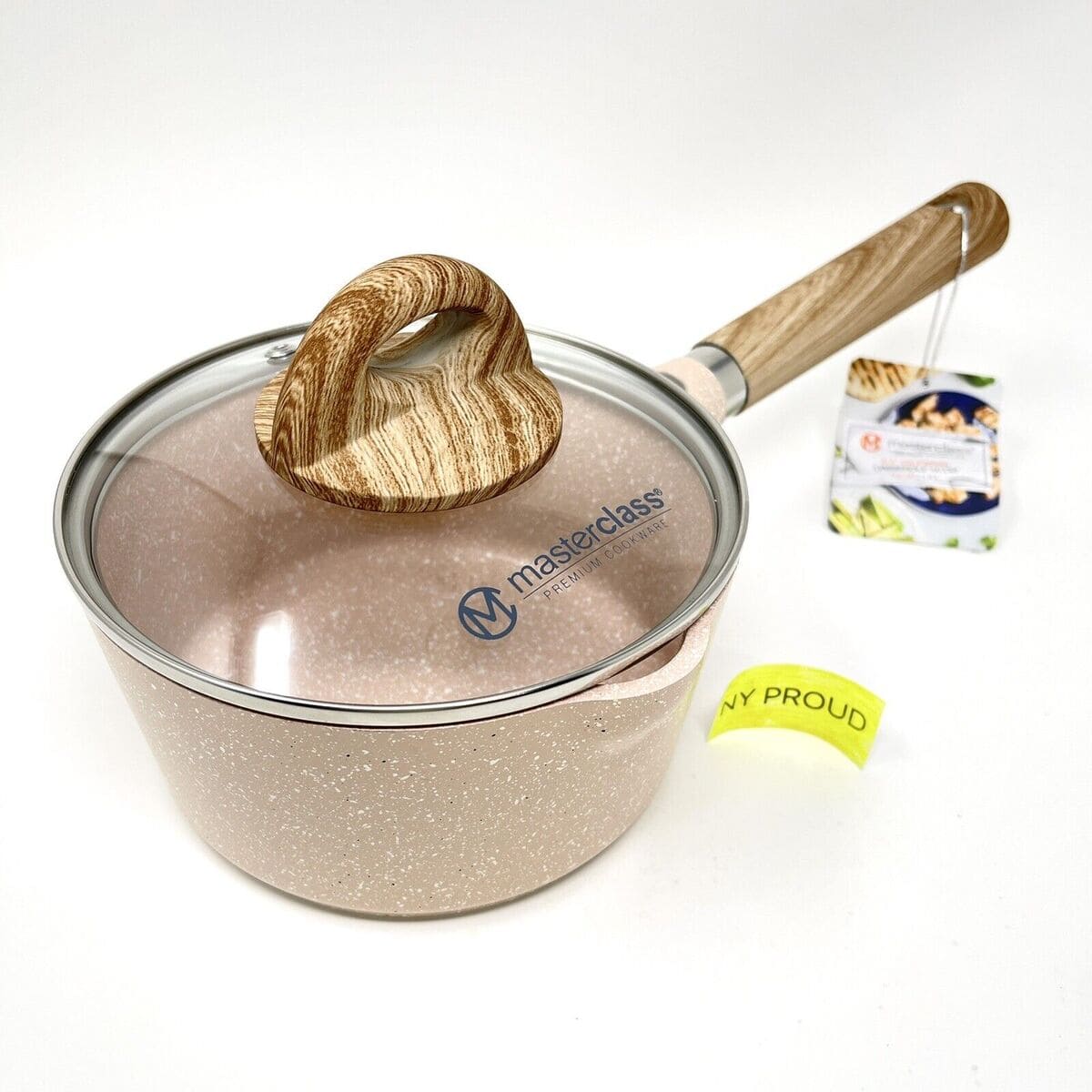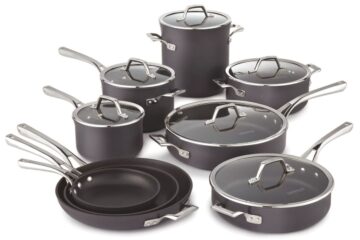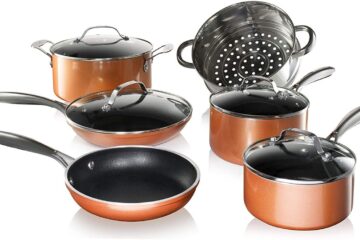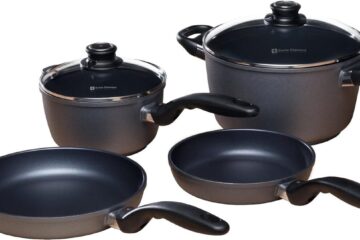Masterclass cookware is a popular choice for many home cooks and professional chefs alike. However, the safety of this cookware has been a topic of concern for some. In this article, we will explore whether or not Masterclass cookware is safe to use and what factors should be considered when using it.
When it comes to cookware safety, it is important to consider the materials used in its construction. Masterclass cookware is typically made from materials such as stainless steel, cast iron, aluminum, and ceramics. These materials are generally considered safe for cooking, but it is important to note that individual experiences may vary. Additionally, it is important to consider factors such as proper usage and maintenance when determining the safety of any cookware.
What is Masterclass Cookware?
Masterclass is a UK-based company that produces a wide range of cookware and bakeware products. Their products are known for their high-quality materials, durability, and aesthetic appeal. Masterclass cookware includes pots, pans, woks, and other cooking vessels, as well as baking sheets, cake tins, and other baking essentials.
Masterclass cookware is made from a variety of materials, including stainless steel, cast iron, aluminum, and ceramics. Each material has its own unique properties and benefits. For example, stainless steel is durable and easy to clean, while cast iron is excellent for heat retention and even cooking. Aluminum is lightweight and conducts heat well, while ceramics are non-reactive and scratch-resistant.
Masterclass cookware also features a range of non-stick coatings, which make cooking and cleaning easier. These coatings are typically made from materials like PTFE or ceramic, and are designed to prevent food from sticking to the surface of the cookware.
In addition to their standard cookware products, Masterclass also offers a range of specialty items, such as paella pans, tagines, and fondue sets. These products are designed for specific cooking styles and techniques, and can help home cooks achieve professional-level results in their own kitchens.
Safety Features of Masterclass Cookware
Masterclass cookware is known for its quality and safety features. The cookware is designed to meet the needs of home cooks and professional chefs alike. This section will discuss the safety features of Masterclass cookware.
Non-Stick Coating
Masterclass cookware is coated with PTFE-free quantum II material, which is chemical-free and safe for use. The double coating makes cooking sensitive meals possible without the risk of food sticking to the pan. This feature ensures that the food is cooked evenly and does not burn, making it a safe option for cooking.
Heat Resistance
Masterclass cookware is designed to withstand high temperatures, making it safe for use in the oven and on the stovetop. The oven-safe temperature of Masterclass cookware varies depending on the specific material and design of the cookware. However, it is generally safe to use at temperatures up to 500°F.
Durability
Masterclass cookware is made of high-quality materials and construction, making it durable and long-lasting. The cookware is designed to withstand heavy use and is resistant to scratches and dents. This feature ensures that the cookware remains safe for use even after prolonged use.
Toxicity
Masterclass cookware is free from toxic materials such as lead or cadmium, making it safe for use. PTFE is very inert and unlikely to cause any harm unless inhaled. Another concern some may have is aluminum’s tendency to leech into other substances at high temperatures. However, Masterclass cookware is designed to prevent this from happening, making it a safe option for cooking.
Concerns About Masterclass Cookware Safety
Masterclass cookware is generally considered safe for cooking, but there are some concerns that consumers should be aware of. The following sub-sections outline some of the potential health risks associated with Masterclass cookware.
Health Risks of Non-Stick Coating
Masterclass cookware often features a non-stick coating, which can be convenient for cooking and cleaning. However, there are some health risks associated with non-stick coatings. When heated to high temperatures, non-stick coatings can release toxic fumes that can be harmful to human health. Overheating non-stick cookware can also cause the coating to break down and release toxic chemicals into food.
Potential for Leaching
Another concern with Masterclass cookware is the potential for leaching. Some materials used in cookware production, such as aluminum, can leach into food when heated. While Masterclass cookware is generally considered safe, some consumers have reported issues with warping or toxic chemicals leaching into their food.
Chemicals Used in Production
Masterclass cookware is made of high-quality materials and construction, but there are still some chemicals used in production that consumers should be aware of. Some Masterclass cookware may contain PTFE, a chemical used in non-stick coatings that has been linked to health risks. Additionally, some Masterclass cookware may contain trace amounts of lead or cadmium, which can be harmful if ingested.
How to Use Masterclass Cookware Safely?
Masterclass cookware is generally safe to use, but it is important to take certain precautions and follow proper cleaning and maintenance procedures to ensure its safety. Here are some tips on how to use Masterclass cookware safely.
Precautions to Take
- Always use the cookware according to the manufacturer’s instructions.
- Do not use metal utensils on non-stick cookware, as this can scratch the surface and damage the non-stick coating.
- Avoid using high heat settings, especially on non-stick cookware, as this can cause the coating to break down and release toxic fumes.
- Do not allow the cookware to boil dry, as this can damage the cookware and create a fire hazard.
- Keep the cookware out of reach of children and pets.
Cleaning and Maintenance Tips
- Always clean the cookware thoroughly after each use, using a mild detergent and warm water.
- Do not use abrasive cleaners or steel wool on non-stick cookware, as this can scratch the surface and damage the non-stick coating.
- Avoid using harsh chemicals or bleach on the cookware, as this can damage the finish and create a health hazard.
- Store the cookware in a dry, cool place, away from direct sunlight and heat sources.
Conclusion
By following these simple tips, you can use Masterclass cookware safely and avoid any potential health hazards. Always remember to read the manufacturer’s instructions carefully and take proper care of your cookware to ensure its longevity and safety.



